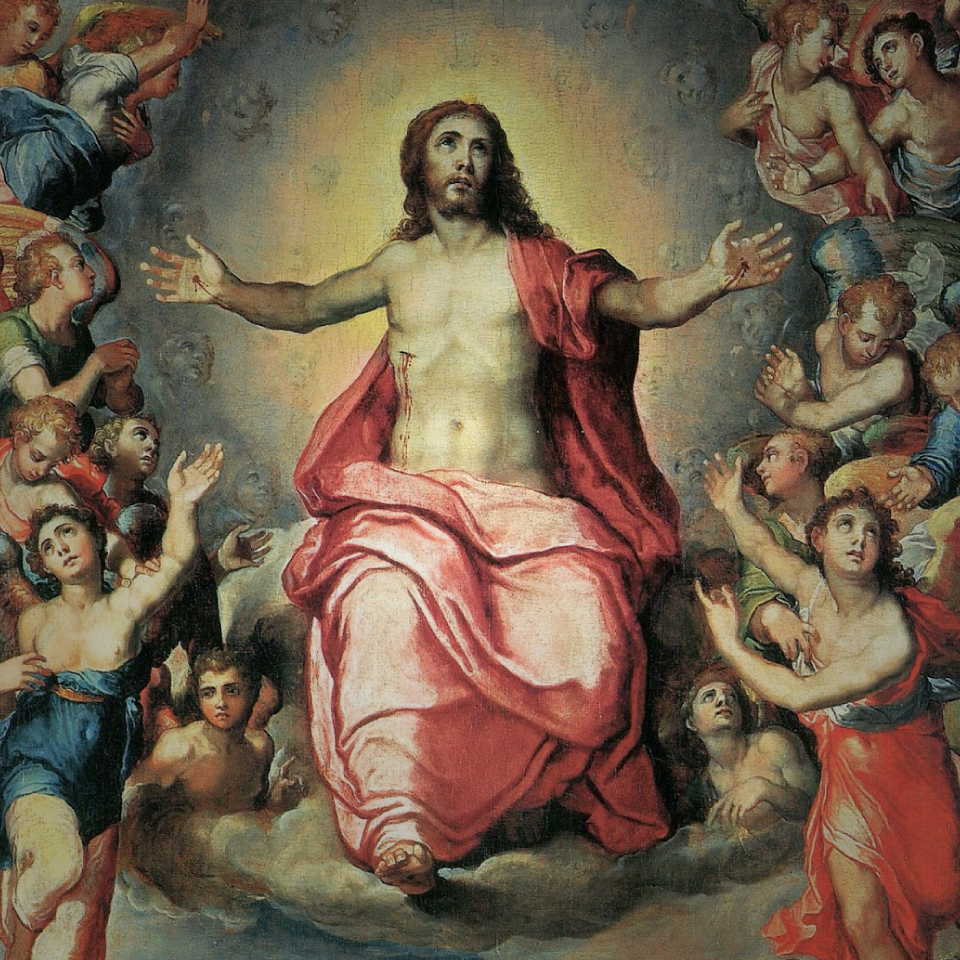As human beings, we learn to do great things by imitating others. “Imitation is natural for man from childhood,” says Aristotle, “one of his advantages over the lower animals being this, that he is the most imitative creature in the world, and learns first by imitation” (Poetics IV). This naturally means that there must be an exemplar to imitate, and that without this exemplar learning is not possible. An exemplar serves as an end or telos that helps us both to filter out bad influences in our lives and to determine the actions we must undertake. For instance, when one wants to become a professional athlete, he or she will imitate excellent athletes and ignore whatever influences are contrary to being like that particular athlete. The excellence of the athlete alone is enough to make him or her worthy of emulation. Greatness inspires, and when we see great people, we desire to imitate them and become great ourselves.
Jesus Christ is the exemplar of holiness and perfection. “Christ,” the Church tells us, “fully reveals man to man himself and makes his supreme calling clear” (Gaudium et Spes 22). In other words, the Second Person of the Divine Trinity became man to teach us how to be human. He is the perfect exemplar of what it means to be human. Further, he invites us to follow him. “Take my yoke upon you, and learn from me; for I am gentle and lowly in heart, and you will find rest for your souls” (Matt. 11:29). In another place, Jesus says, “Whoever does not carry his own cross and come after me cannot be my disciple” (Luke 14:27). In this way, he becomes our model of holiness.
Jesus is divine and we are not, thus making all human effort of imitation impossible; however, unlike human exemplars, Jesus is not only our model for holiness but, even more, the cause of our holiness. The Holy Spirit has been poured into our hearts that we might live by the same dynamism as Christ. As St. Paul says to the Corinthians, “He has put his seal upon us and given us his Spirit in our hearts as a guarantee” (2 Cor. 1:22). Because the Son of God has given himself to us through the Spirit, we are able to see in him a model for a perfection that is attainable; we follow him because he offers us the life of our redeemed humanity. As we each individually enter into this divine life of the Son, we allow him to transform our lives into his own.
Jesus transforms the face of the earth through the Spirit working in the hearts of all the baptized who strive to follow his example. The Mystical Body of Christ grows “until we all attain to the unity of the faith and of the knowledge of the Son of God, to mature manhood, to the measure of the stature of the fulness of Christ” (Eph. 4:13). Imitation is necessary for us to grow in virtue and holiness, and it is possible to imitate the Divine Model through the grace he gives us.
We are invited to follow Christ as his disciples as he reveals to us our redeemed humanity. In so doing, we do not merely copy his actions but become partakers in his own life. May we allow ourselves to be protected from whatever keeps us from the perfection found in him and to be molded into his likeness.
This post was originally written by Br. Vincent Mary Bernhard, O.P.
